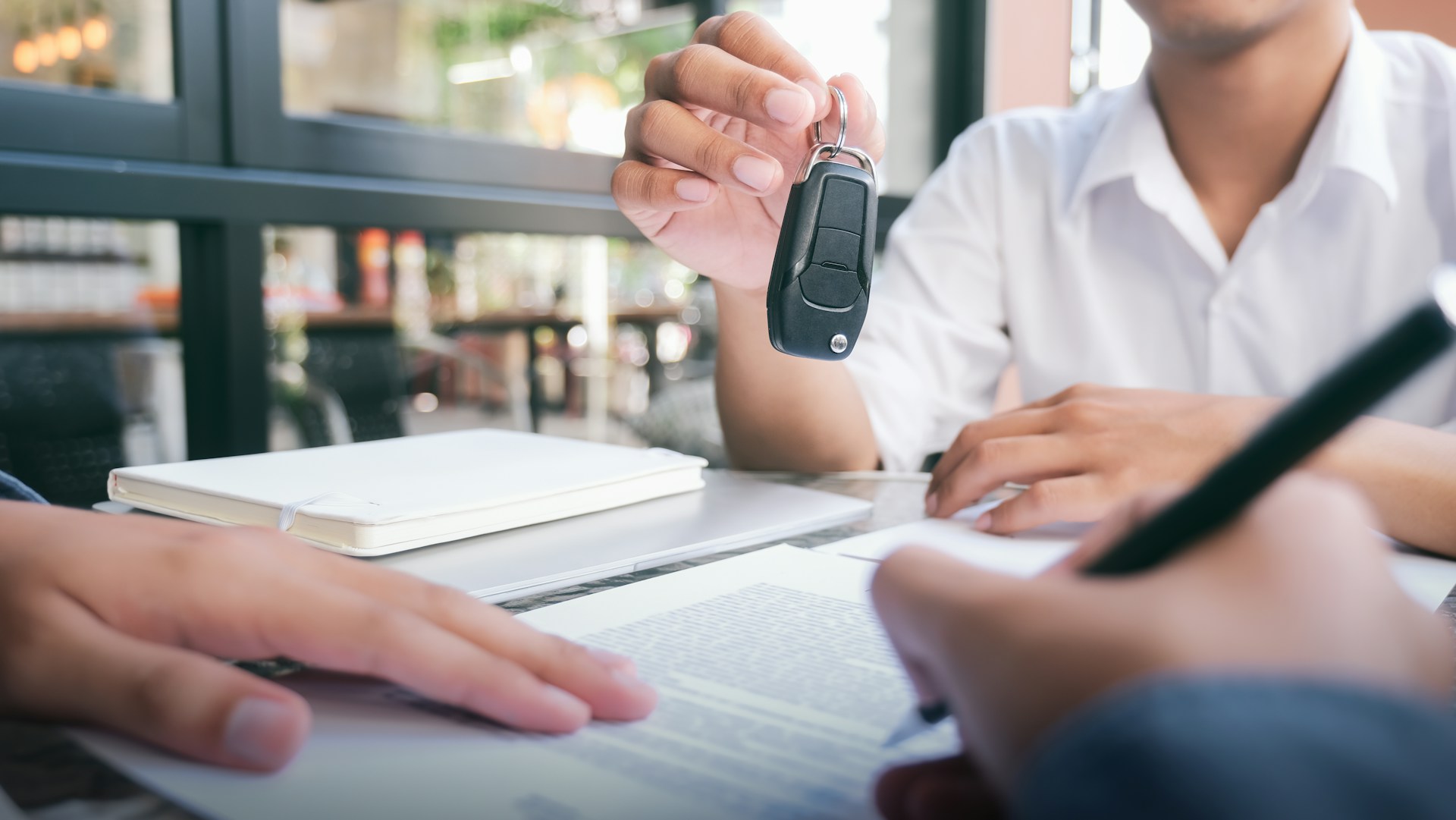
Buying a car privately should be simple and safe. Yet, many payment methods are risky, slow, expensive, inconvenient, or all of the above.
Let’s cut through the confusion and find the best way to pay for a car—securely and quickly.
Physical cash has one big advantage: you pay on the spot. No waiting for funds to clear, and no transaction fees. But for high-dollar car sales, cash payment is a bit risky and awkward. Here’s why:
If you’re buying an old beater for a couple of thousand dollars, buying a vehicle in cash is fine. But for a $50,000 F-150, you want something as immediate as cash, minus the risk and trouble.
Wire transfers offer a high level of security and finality. The bank verifies your funds and sends the payment to the seller’s bank account. Wire transfers are great for the seller because they typically wait until the funds clear to hand over the title.
Here’s why you might want to skip using a wire transfer to pay for your car:
The best way to pay with a bank transfer is to confirm the seller’s identity and meet them at your bank early in the day to initiate the payment. If you don’t like prolonged inconvenience or placing your trust in a stranger—but you do like the finality and certainty of a bank wire—then DealNow will be your best friend.
Cashier’s checks are a tried-and-true avenue for two strangers to get a high-value transaction done. Your bank places a hold on your funds and guarantees that your cashier’s check is good.
A smart seller will insist on meeting you at your bank so the bank can guarantee the check’s legitimacy, given the prevalence of cashier’s check forgeries.
If you’d rather skip the inconvenience and reliance on banker’s hours, read on.
Peer-to-peer payment apps such as Venmo are great for splitting bills. They’re inadequate for large fund transfers. Here’s why:
Let’s look closer at the shortcomings of payment apps for vehicle transactions.
If you have a verified PayPal account, you can send up to $60,000 in a single transaction. If the sales price is less than that, you’re golden—if you don’t mind the fees.
PayPal charges a 2.9% + $0.30 fee for goods and services. For a $60,000 vehicle, that’s almost $1,800. If the seller insists on using PayPal, they might be charging you more to cover their fees.
PayPal will allow you to dispute transactions for up to 180 days. So you do have some protection against untrustworthy sellers.
If you have a verified personal Venmo account, you can send up to $4,999.99 per transaction. If you’re buying a 1997 Civic, go for it. For most cars, $5K won’t cut it.
If you have a verified personal Venmo account, you can send up to $4,999.99 per transaction. If you’re buying a 1997 Civic, go for it. For most cars, $5K won’t cut it.
Zelle doesn’t allow high enough fund transfers to be viable. Its limits vary by bank but are usually around $2,000 to $5,000 per day.
Save those other apps for pizza night. DealNow gives you the immediacy and convenience of a payment app without limits on the amount of funds you can send.

Most sellers won’t be set up to accept direct credit card payments. Unless they own a client-facing business, they won’t have the equipment. Even if they do, they probably won’t want to mix personal and business transactions.
To pay by credit card, you (and the seller) will need to use an intermediary payment processor. Stripe is the most common. Buying a Toyota Tacoma for $35,000? If you pay via Stripe, brace yourself:
If you’re advocating for a credit card payment, the seller will probably expect you to cover the fees. There go any cashback rewards you were hoping for.
Cryptocurrency is fast, peer-to-peer, and secure. It’s also difficult to navigate and incredibly volatile. Unless you’re familiar with the world of blockchain, steer clear. Here’s why crypto is not for the masses:
If instant, secure payments made by mobile are what you’re looking for, we’ve got a solution for you.
DealNow combines escrow-like security with the immediacy and convenience of a peer-to-peer mobile app. No more counting bills, waiting for payment confirmation, or trading sensitive data—just quick, secure transactions from your mobile device.
Here’s why DealNow is the best way to pay when buying a car:
DealNow is more than a payment app—it’s your partner in simple, secure, and stress-free auto transactions. Here’s how it works:
It’s that easy. After you’ve used DealNow, you’ll never want to buy a car any other way.
The safest payment option is DealNow’s secure payment system. DealNow provides instant, verified transfers of up to $1 million, unlike cash (which can be counterfeit or stolen) or checks (which can bounce). The funds are securely held and instantly released upon completion of the sale, protecting both the buyer and seller throughout the transaction.
Private car sales can be risky. Here’s how to protect yourself:
Remember, a little caution goes a long way. With DealNow, you get built-in safeguards and a secure payment process, making your car-buying experience safer and smoother.
Most states require the buyer of a car to pay sales tax on the purchase. Besides sales tax, there aren’t any other tax implications when buying a car.
Here’s what you need to know about tax implications for vehicle purchases in a general sense.
If you’ve found a good used car and are ready to buy it, an escrow service can help the private-party transaction go smoothly. Unfortunately, traditional escrow services are expensive and inconvenient.
DealNow gives you escrow-like safeguards in the palm of your hand. Where an escrow company charges hefty fees, DealNow only charges a small, flat fee when sending payments.
Buying a car from a private seller isn’t just faster—it’s often cheaper too. Here’s why:
Bottom line? Private sales let you stretch your car-buying dollar further.